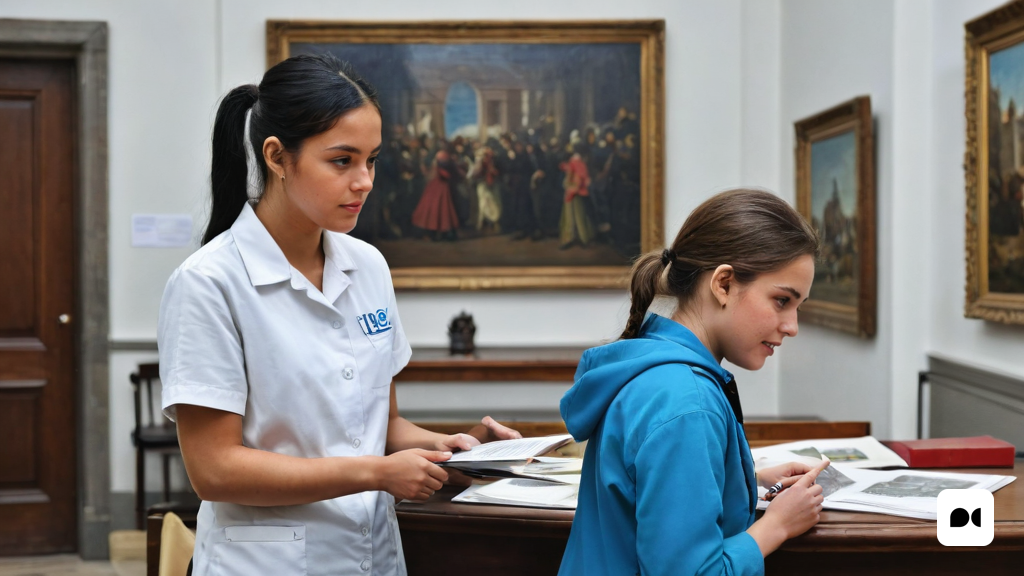The Importance of Heritage Education
As part of International Museum Day, the International Council of Museums (ICOM) highlights the crucial role of museums as centers of education and research. Heritage education, a fundamental pillar of the social museum, plays a vital role in disseminating knowledge and promoting cultural understanding.
The Role of Heritage Educators
Heritage educators, also known as museum educators, are highly trained professionals dedicated to facilitating meaningful educational experiences within museums. They are the visible faces of these institutions and those responsible for connecting the public with the knowledge and values they promote.
Through their training in interpretation, heritage teaching and active educational methodologies, heritage educators create bridges between visitors and museums. They encourage critical thinking, public participation, and the inclusion of diverse perspectives.
The Problem of Outsourcing
Despite its importance, the heritage education sector has faced an endemic problem: the outsourcing of educational services. This practice has led to the precarious working conditions of heritage educators, who are often forced to compete in tenders for temporary contracts.
Outsourcing has generated a situation in which private companies value the profiles of educators based on their own interests, which has led to the creation of unrepresentative and poorly paid job categories.
The Call to Professionalization
The Catalan Association of Heritage Education (ACEP) has denounced this situation, advocating for a change in the approach towards heritage education. ACEP works to promote its own agreement that professionalizes this profession and establishes fair working conditions for educators.
This agreement would seek dialogue and collaboration between all interested parties, recognizing the value of heritage education as a technical and structural aspect of museums.
The Social Museum: A Space of Care and Responsibility
A social museum not only preserves collections, but also takes care of people and work teams. It is responsible for the life dynamics it generates and must ensure the well-being of all those involved.
It is imperative that heritage educators become structural staff of museums, with the same working conditions as the rest of the technical teams. Budgets allocated to education must be allocated equitably, recognizing the importance of this pillar.
The Future of Heritage Education
Heritage educators are eagerly awaiting the changes in museum institutions and the new initiatives of the Association of Museum Professionals of Catalonia. Meanwhile, they continue to debate the nature of their work, questioning whether it involves mediation or education.
The wheel of precariousness and lack of recognition cannot continue turning. It is essential that institutions and educators work together to find sustainable solutions that guarantee a bright future for heritage education.
Quality Education: A Fundamental Objective
The United Nations Sustainable Development Goals promote quality, inclusive and equitable education. This definition contrasts with the reality of heritage education in many museums, where precariousness and lack of recognition are obstacles to achieving this objective.
It is time for museums to truly commit to education, recognizing and valuing the essential role of heritage educators. Only in this way can they become true centers of educational transformation and research, contributing to a more informed and culturally vibrant future.

